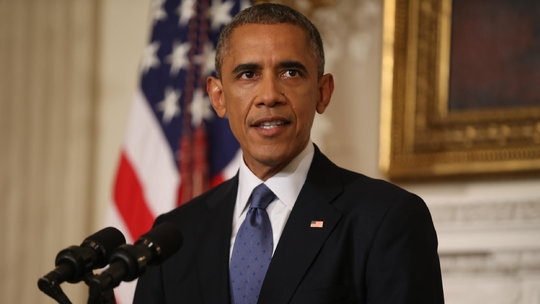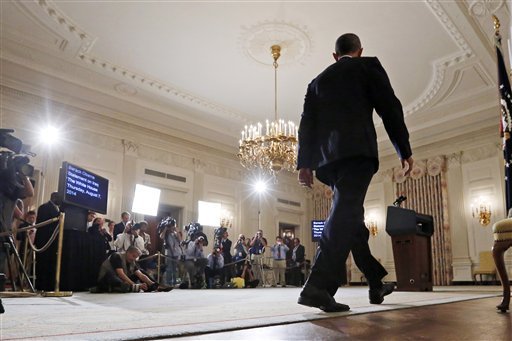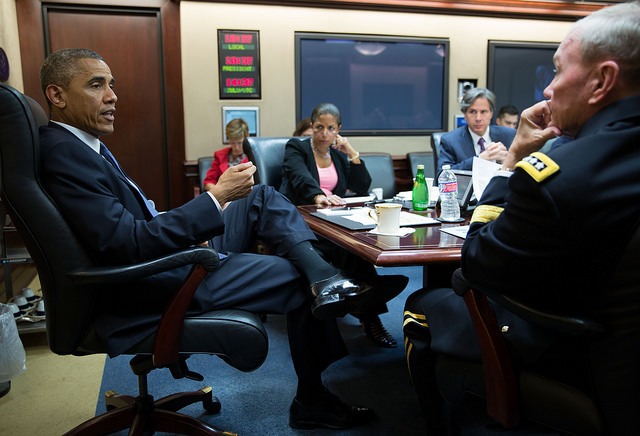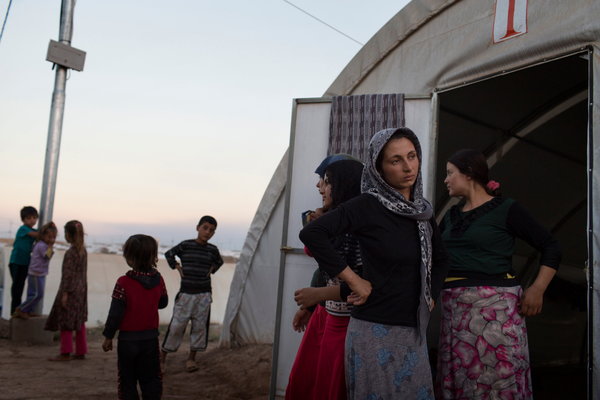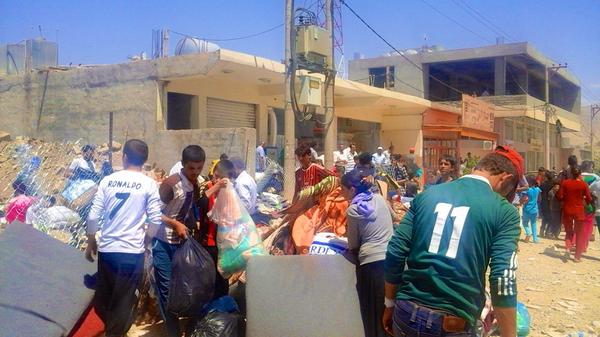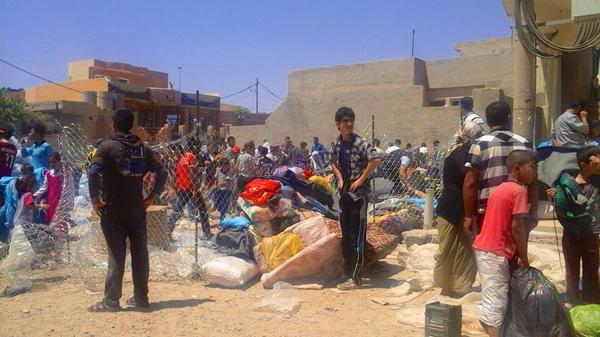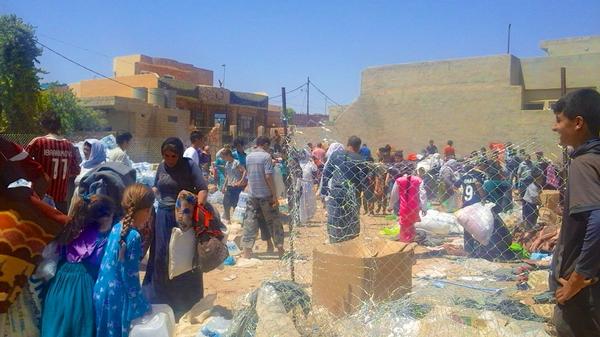Barack Obama Authorises 'Targeted Airstrikes' On ISIS In Iraq
"Earlier this week, one Iraqi cried that there is no one coming to help. Well, today America is coming to help."
On 7 August 2014, Barack Obama authorised targeted airstrikes against the Islamic State (also known as ISIL or ISIS) in Iraq, as the US military began an airborne operation to bring relief to thousands of minority Iraqis driven to a grim, mountain-top refuge
President Obama spoke about actions taken by his administration in Iraq, including airdrops of humanitarian supplies and the authorization of airstrikes against ISIS forces.
Image via nyt.comPresident Obama announced Thursday night that he had authorized U.S. airstrikes in Iraq if militants from the Islamic State (also known as ISIL or ISIS) approached the strategically important northern city of Erbil, where U.S. personnel are stationed.
In a national address, the president said U.S. planes were also authorized to provide air support to thousands of members of an ethnic group in Iraq, the Yazidis, if the militants make a move toward the mountain they're stranded on.
Describing the threats against stranded Yazidi refugees as holding the potential for "genocide", Obama said he had authorised limited airstrikes to help Iraqi forces, to assist in the fight to break the siege and protect the civilians trapped there
“When we face a situation like we do on that mountain, with innocent people facing the prospect of violence on a horrific scale and we have a mandate to help - in this case a request from the Iraqi government - and when we have unique capabilities to act to avoid a massacre, I believe the United States cannot turn a blind eye,” the president said in a late-night statement from the White House.
"Earlier this week, one Iraqi said no-one is coming to help. Well, today America is coming to help," the president said — although he also insisted that ground troops would not be involved in the operation. "We cannot and should not intervene every time there is a crisis in the world," Obama clarified. But he'd decided that in this case, "we can act carefully and responsibly to prevent a potential act of genocide."
President Barack Obama meets with his national security advisors in the Situation Room of the White House, Aug. 7, 2014.
Image via mshcdn.comThe president insisted that these military operations did not amount to a full-scale re-engagement in Iraq. But the relentless advance of the militants, whom he described as “barbaric,” has put them within a 30-minute drive of Erbil, raising an immediate danger for the American diplomats, military advisers and other citizens who are based there.
“As commander in chief, I will not allow the United States to be dragged into another war in Iraq,” said Mr. Obama, who built his run for the White House in part around his opposition to the war in Iraq.
The US airstrikes would mark a significant shift in America's strategy in Iraq, where the military fully withdrew in late 2011 after nearly a decade of war
Obama, who made his remarks in a steady and somber tone, has staked much of his legacy as president on ending what he has called the "dumb war" in Iraq.
The U.S. has not yet conducted airstrikes, senior administration officials said after the speech, but there were reports earlier in the day of airstrikes in the region, possibly by the Iraqi air force.
Obama confirmed that the US had begun airdropping food and water to the Yazidi minority, which is stranded on Mt. Sinjar near Mosul after fleeing the Islamic militants
Iraqi Yazidi people who fled their homes in Sinjar took shelter at Bajid Kandal refugee camp in Dohuk Province on Thursday.
Image via nyt.comU.S. officials said the first round of airdropped supplies included 5,300 gallons of drinking water and 8,000 ready-to-eat meals (MREs), using one C-17 and two C-130 U.S. aircraft and escorted by two American F/A-18s.
The aircraft assigned to dropping food and water over the mountainside were a single C-17 and two C-130 aircraft. They were escorted by a pair of F-18 jet fighters, the administration official said. The planes were over the drop zone for about 15 minutes, and flew at a relatively low altitude. They flew over the Mount Sinjar area for less than 15 minutes, Pentagon officials said, and dropped a total of 5,300 gallons of fresh drinking water and 8,000 meals ready to eat.
A senior administration official said that the humanitarian effort would continue as needed, and that he expected further airdrops. "We expect that need to continue."
The official said that as conditions in Iraq deteriorated in recent days, the United States had worked with Iraqi security forces and Kurdish fighters to coordinate the response to militant advances. The official said the cooperation had included airstrikes by Iraqi forces against militant targets in the north.
Meanwhile, the UK prime minister David Cameron has welcomed Barack Obama's decision to authorise airstrikes against ISIS in Iraq. He said the world must help religious minorities in Iraq who are under threat from the militants, "in their hour of desperate need".
Mr Cameron has asked officials to look at ways the UK can provide help, but a spokeswoman ruled out military strikes. The Foreign Office has advised Britons not to travel to the Kurdistan region.
In a statement on Friday morning, Mr Cameron said: "I welcome president Obama's decision to accept the Iraqi government's request for help and to conduct targeted US air strikes, if necessary, to help Iraqi forces as they fight back against Isil terrorists to free the civilians trapped on Mount Sinjar. And I fully agree with the President that we should stand up for the values we believe in - the right to freedom and dignity, whatever your religious beliefs."
A Downing Street spokeswoman said the UK was "not planning a military intervention". But Mr Cameron added: "I have tasked officials to urgently establish what more we can do to provide help to those affected, including those in grave need of food, water and shelter in the Sinjar area."
